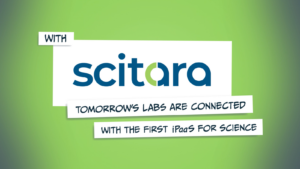In the fast-paced world of scientific research, development and manufacturing, time is of the essence. Laboratories are constantly seeking ways to streamline their processes and expedite project completion times. One transformative solution gaining momentum in lab digital transformation is lab data integration and automation platforms. This blog on organizational benefits is part of a five-part series that also looks at the people benefits, department benefits, financial benefits and customer benefits of implementing these platforms.
Organizational Benefits
Data integration platforms have become indispensable in the realm of scientific laboratories, not only for individual projects but also for the entire organization. These platforms offer many organizational benefits that contribute to faster decision-making, greater insights from data, improved compliance, and effective risk mitigation. The adoption of data integration platforms at an organizational level enhances operational efficiency and drives positive outcomes across various facets of laboratory management.
- Accelerated Decision-Making: Organizations often face challenges in accessing and processing data in a timely manner. Data integration platforms break down silos within the laboratory by providing a unified view of data across different departments and functions. This unified approach empowers decision-makers with real-time insights, enabling them to make informed and prompt decisions. Whether it’s project management, resource allocation, or strategic planning, the accelerated availability of data fosters agility in decision-making processes.
- Greater Insights from Data: Scientific laboratories generate vast amounts of data through experiments, tests, and research activities. Extracting meaningful insights from this data is a complex task. Data integration platforms, by connecting disparate datasets and analytical tools, facilitate a more holistic and comprehensive analysis. This enhanced analytical capability leads to the discovery of patterns, trends, and correlations that might have been overlooked in isolated datasets, especially when leverage AI/ML. The result is a deeper understanding of scientific processes and phenomena, driving innovation and breakthroughs.
- Improved Compliance: Adherence to regulatory standards is a critical aspect of laboratory operations. Manual data management processes often pose challenges in maintaining compliance with these standards. Data integration platforms offer a centralized and standardized approach to data governance. This not only ensures that data is handled consistently but also facilitates easier monitoring and reporting for regulatory compliance. The improved compliance reduces the risk of penalties, legal issues, and operational disruptions, safeguarding the organization’s reputation.
- Effective Risk Mitigation: Scientific research inherently involves risks, and mitigating these risks is paramount to the success of laboratory projects. Data integration platforms contribute to risk mitigation by reducing the likelihood of errors associated with manual data management. Automated processes ensure data accuracy, and the ability to monitor and track data changes enhances traceability. This proactive approach to risk management minimizes the chances of costly errors, project delays, and reputational damage.
The organizational benefits of implementing data integration platforms in scientific laboratories are far-reaching. From faster decision-making and greater insights from data to improved compliance and risk mitigation, these platforms empower organizations to operate more efficiently and effectively. As laboratories continue to embrace digital transformation, the adoption of data integration platforms emerges as a strategic imperative, positioning organizations at the forefront of scientific innovation and excellence.
